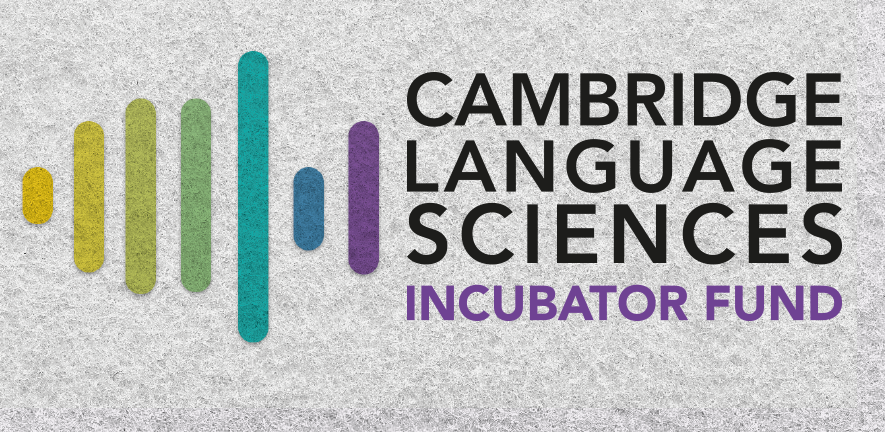
Submitted by Jane Durkin on Thu, 11/04/2024 - 14:03
We are delighted to announce that three new projects have been awarded seed funding through the Language Sciences Incubator Fund.
The successful applicants from the latest call were announced on 11 April 2024.
We would like to congratulate all concerned and thank the reviewers for giving their time to evaluate the proposals.
Posters on the funded research will be presented at future Cambridge Language Sciences Symposium events. We also hope to feature more information about these projects on the Language Sciences website in due course.
Exploring novel figurative language to conceptualise Large Language Models
Prof. Ann Copestake (Computer Science and Technology), Dr Lucy Duggan (writer, translator), Dr Aurelie Herbelot (computational semanticist and entrepreneur), Amira Moeding (History), Dr Eva von Redecker (writer, philosopher)
Current discussions around Large Language Models (LLMs) are plagued by technical misunderstandings and debatable conceptualisations. New analogies and metaphors are needed to foster truly productive conversations among experts and the general public. This project will actively develop such conceptual tools, hoping to encourage new research directions and to improve broader discussions around AI regulation and ethics. It brings together a team of researchers and writers from a diversity of backgrounds to develop a radically new interdisciplinary approach to the presentation of technological debates.
Neural encoding of AI-generated speech prosody by L1 and L2 speakers
Dr Julia Schwarz (Psychology), Linda Bakkouche, Stephanie Cooper, Xinbing Luo, Madeleine Rees, Prof. Brechtje Post (Theoretical and Applied Linguistics), Charles McGhee (Engineering), Dr Kai Alter (Medical Sciences, Newcastle University)
State-of-the-art artificial intelligence (AI)-powered voice clones closely resemble human voices and are becoming an indispensable tool for many educational and clinical applications such as second language learning, audiobooks, and assistive technology. While AI voices can closely imitate human voices, they are not yet identical, especially with respect to speech prosody. However, to what extent the prosodic differences of AI-voices impact speech processing has not yet been investigated. This project aims to unravel listeners’ neural responses to prosodic features in human vs. AI voices, and to evaluate whether any resulting differences in encoding may influence language comprehension, particularly among language learners.
Generative Speech Corpora for Ecological Speech Perception Assessment*
Dr Lidea Shahidi, Dr Tobias Goehring, Jacqueline Von Seth (MRC Cognition and Brain Sciences Unit), Dr Marina Salorio-Corbetto (Clinical Neurosciences), Dr Calbert Graham, Madeleine Rees (Theoretical and Applied Linguistics)
In speech research and clinical audiology settings, the assessment of speech perception is a critical outcome. This project aims to address limitations in current assessments by developing a framework for generating large-scale acoustic corpora for audiological speech testing. This project is supported by funding from AI@Cam to support research into language equity and inclusion.
About the Incubator Fund
The Incubator Fund is a small grants fund designed to foster innovative interdisciplinary research in the language sciences. It was established by Cambridge Language Sciences with additional funding from the Isaac Newton Trust, Cambridge University Press & Assessment, and the School of Technology.
As well as the opportunity to develop new ideas, collaborations and approaches, Incubator Fund projects can provide proof of concept or evidence of collaboration for larger grant applications. Other positive outcomes include knowledge exchange studentships, publications, fellowships and further career opportunities for researchers involved.
Since the Incubator Fund was established in 2016, over £120,000 of seed funding has been awarded across 44 projects.
Please visit the Incubator Fund page for more information and to see a full list of Language Sciences Incubator Fund projects.
